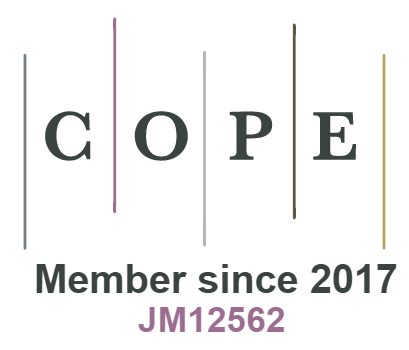Role of Technology in the Development of Smart Cities
DOI:
https://doi.org/10.18034/ei.v8i1.495Keywords:
Smart Cities, Technology, Smart City Challenges, Smart City OpportunitiesAbstract
The key aim of this paper is to address the technical effects of smart city growth. While the smart city issue has been discussed in recent literature, it is of interest if macro ICT considerations should also be considered for determining a city's technical advancement. First of all, literature analysis of a smart city is presented to accomplish this purpose. Along with a theoretical structure focused on the information community, an overview of the smart city idea is included. The ICT development of Smart Cities depends on the characteristics and features of the cities, as well as on macro-technological considerations. Cities that use information technology as a means of urban sustainability build smartness to emerge as smart cities as a source of constant growth and transformation within the urban ecosystem, pursuing a managerial and organizational vision of sustainability. The aim of this thesis is to suggest a theoretical overview of the city as a sustainable society that drives urban development and adopts a smart urban growth vision.
Downloads
References
Arroub, A., Zahi, B., Sabir, E., & Sadik, M. (2016, October). A literature review on Smart Cities: Paradigms, opportunities and open problems. In 2016 International Conference on Wireless Networks and Mobile Communications (WINCOM) (pp. 180-186). IEEE. DOI: https://doi.org/10.1109/WINCOM.2016.7777211
Chaudhari, P. (2017). Role of Information Communication Technology (ICT) in the Development of Smart City. International Journal of Engineering Research in Computer Science and Engineering (IJERCSE). Vol 4. 271-276.
Donepudi, P. K. (2015). Crossing Point of Artificial Intelligence in Cybersecurity. American Journal of Trade and Policy, 2(3), 121-128. https://doi.org/10.18034/ajtp.v2i3.493 DOI: https://doi.org/10.18034/ajtp.v2i3.493
Donepudi, P. K. (2017). Machine Learning and Artificial Intelligence in Banking. Engineering International, 5(2), 83-86. https://doi.org/10.18034/ei.v5i2.490 DOI: https://doi.org/10.18034/ei.v5i2.490
Donepudi, P. K. (2018). Application of Artificial Intelligence in Automation Industry. Asian Journal of Applied Science and Engineering, 7(1), 7-20. http://doi.org/10.5281/zenodo.4146232
Gade, N. R., Gade, N. R., & Reddy, G. U. (2016). Internet of things (IoT) for smart cities-The future technology revolution. Global Journal of Computer Science and Technology.
Grand View Research (2018). PwC and Smart Cities Market Analysis and Segment Forecats to 2025.
Grizhnevich, A. (2018). IoT for Smart Cities: Use Cases and Implementation Strategies. Science Soft. https://www.scnsoft.com/blog/iot-for-smart-city-use-cases-approaches-outcomes
Lea, Rodger. (2017). Smart Cities: An Overview of the Technology Trends Driving Smart Cities.
Mohanty, S. P., Choppali, U., & Kougianos, E. (2016). Everything you wanted to know about smart cities: The internet of things is the backbone. IEEE Consumer Electronics Magazine, 5(3), 60-70. DOI: https://doi.org/10.1109/MCE.2016.2556879
Mohapatra, Badri. (2019). Machine learning applications to smart city. ACCENTS Transactions on Image Processing and Computer Vision. 5. 1-6. 10.19101/TIPCV.2018.412004. DOI: https://doi.org/10.19101/TIPCV.2018.412004
Pozdniakova, Anna. (2016). The Concept of ‘Smart City’: Dimensions, Characteristics and Models.
Voda, A. I., & Radu, L. D. (2018). Artificial intelligence and the future of smart cities. BRAIN. Broad Research in Artificial Intelligence and Neuroscience, 9(2), 110-127.
--0--
Downloads
Published
Issue
Section
License
Engineering International is an Open Access journal. Authors who publish with this journal agree to the following terms:
- Authors retain copyright and grant the journal the right of first publication with the work simultaneously licensed under a CC BY-NC 4.0 International License that allows others to share the work with an acknowledgment of the work's authorship and initial publication in this journal.
- Authors are able to enter into separate, additional contractual arrangements for the non-exclusive distribution of the journal's published version of their work (e.g., post it to an institutional repository or publish it in a book), with an acknowledgment of its initial publication in this journal. We require authors to inform us of any instances of re-publication.









